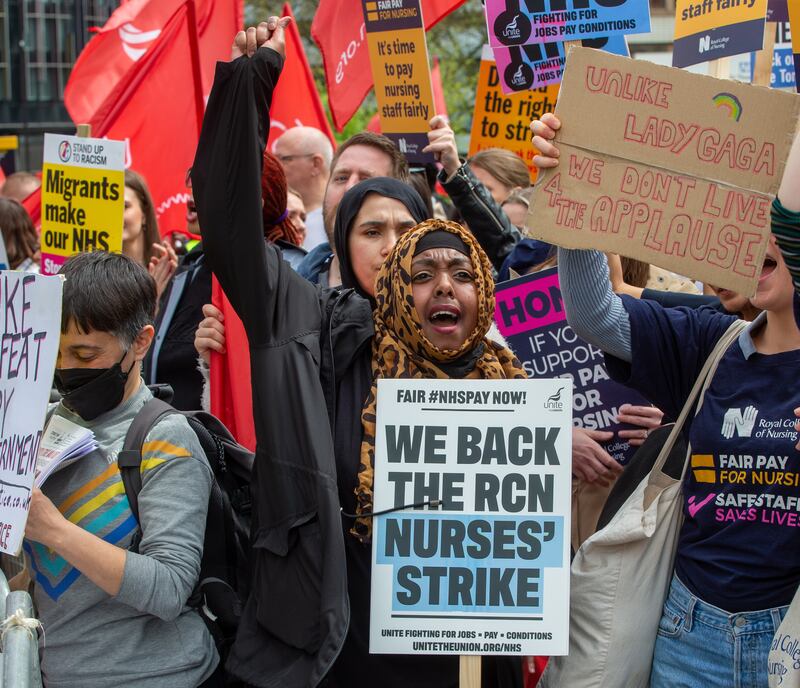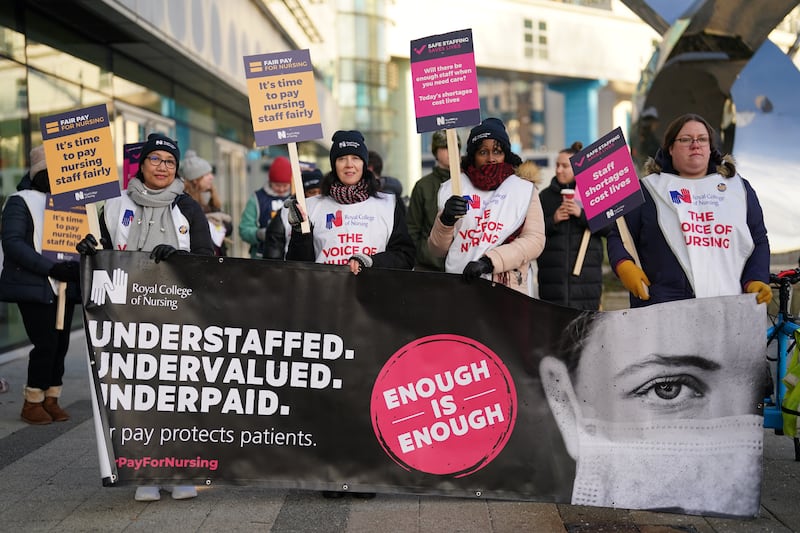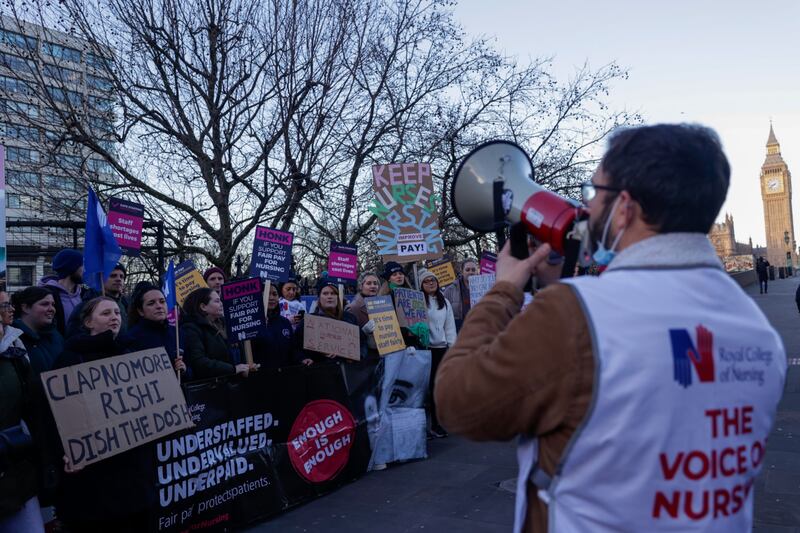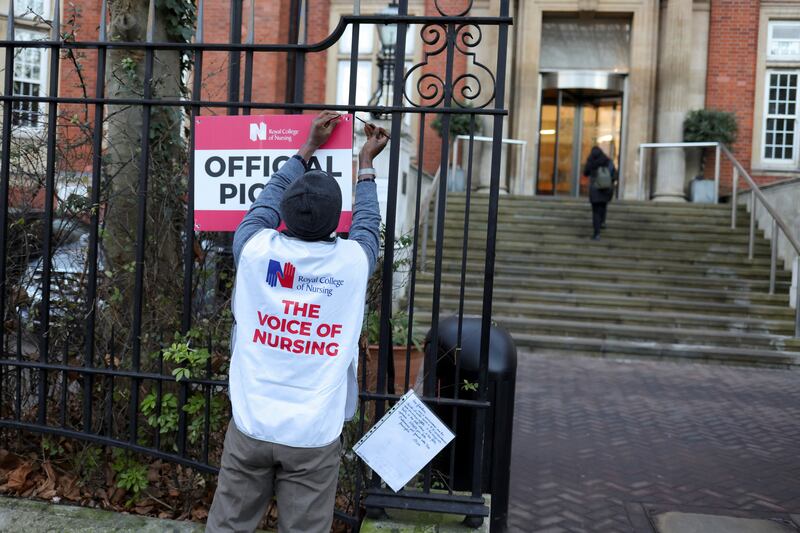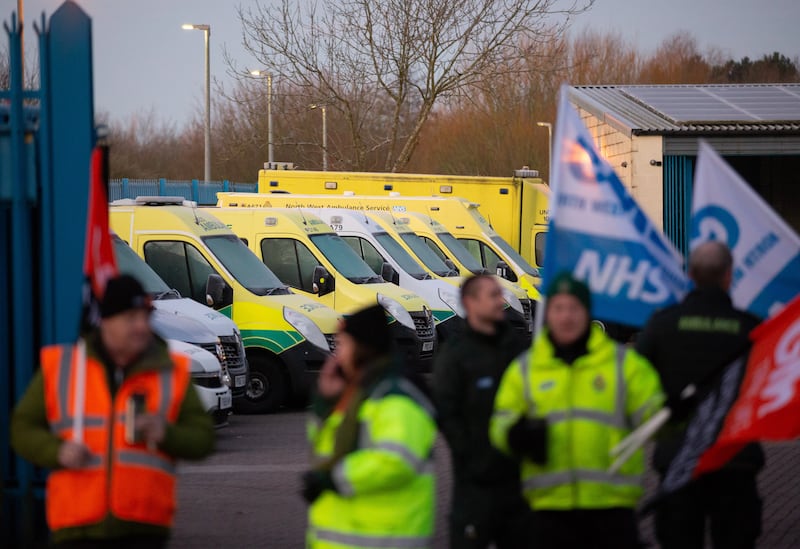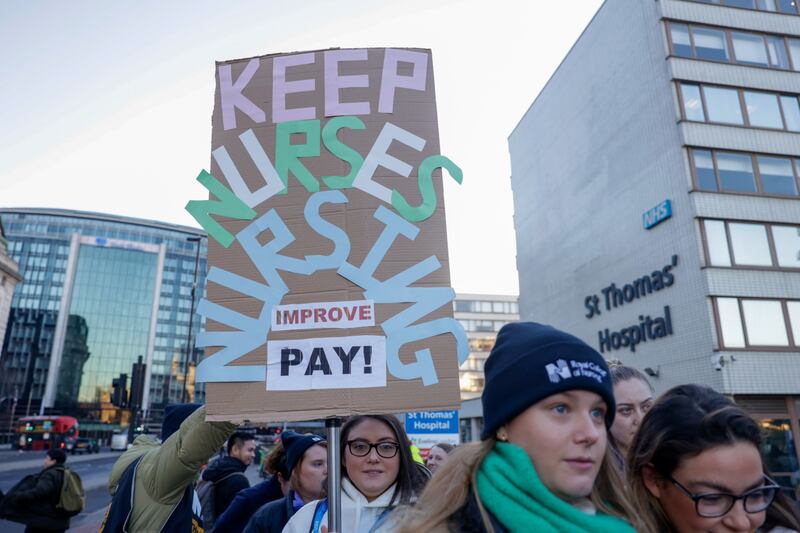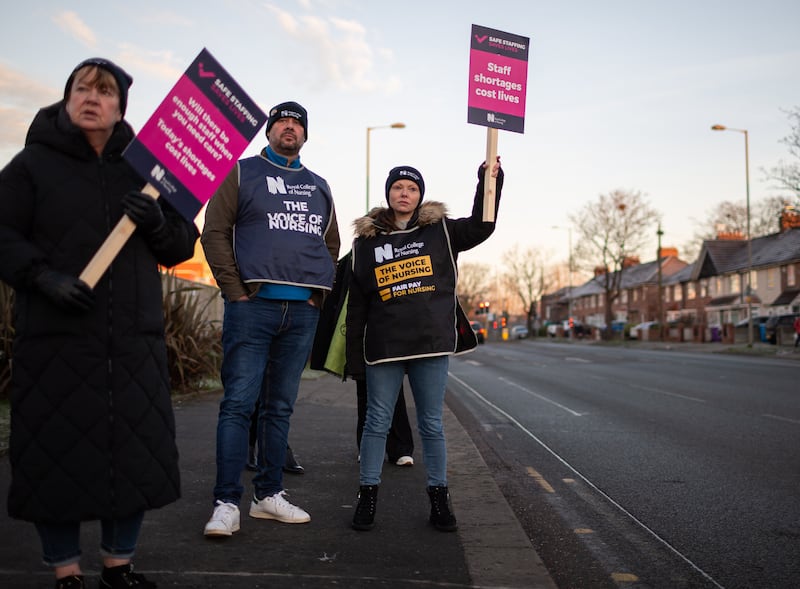A council of health unions in Britain has voted to accept a pay offer after weeks of strikes in the National Health Service.
It paves the way for the government to force through a deal despite continued opposition from some unions.
Health Secretary Steve Barclay called for strikes to end after a “fair and reasonable deal”.
But of the unions holding out, Unite immediately announced it would be “escalating strike action”.
“The Prime Minister [Rishi Sunak] needs to stop hiding, step in and solve this dispute,” said Unite's general secretary Sharon Graham.
The offer involves a 5 per cent pay rise and additional lump sum for workers on the agenda for change contract, which excludes doctors and dentists.
Workers have also called for measures to address understaffing and burnout.
Members of unions including Unison, the GMB and those representing midwives and physiotherapists voted in favour of the deal.
The unions backing the deal had a majority on the NHS staff council, which voted in favour of the pay offer on Tuesday.
“I’m pleased the NHS staff council has voted to accept our pay offer, demonstrating that a majority of NHS staff agree this is a fair and reasonable deal,” Mr Barclay said.
“It is now my intention to implement this for all staff on the agenda for change contract and where some unions may choose to remain in dispute, we hope their members — many of whom voted to accept this offer — will recognise this as a fair outcome that carries the support of their colleagues and decide it is time to bring industrial action to an end.”
Members of two unions — the Royal College of Nursing and Unite — voted to reject the government’s offer, prompting another walkout by some nurses which ended on Monday night.
The RCN says it “remains in dispute” with the government regardless of what it said would be a “foregone conclusion” at Tuesday's meeting.
The union's leader previously warned that strikes could last until the end of the year.
Unite members at ambulance trusts and hospitals remained on strike on Tuesday after nurses returned to work.
Nurses and ambulance workers on strike in Britain — in pictures
Matthew Taylor, the chief executive of the NHS Confederation, said there remained a “worrying prospect of further industrial action”.
“While the NHS staff council outcome is very positive news overall, it is not the line in the sand that will allow the NHS and those relying on its care, to confidently move on from the threat of future strikes,” he said.
“There are 124,000 vacancies across the NHS in England and health leaders need the government’s imminent workforce plan to set a clear road map to ensure services have the right numbers and mix of workers to deliver for patients, and that existing staff do not feel in a perpetual state of burnout.”
Meanwhile, members of the National Education Union in England will stage a 24-hour strike on Tuesday in their bitter pay dispute.
School and classroom closures will force parents to keep their children at home again.
The union is urging the government to hold new talks in a bid to break the deadlock.
Four unions representing teachers and head teachers have warned they will co-ordinate future protest action if the row is not resolved.
